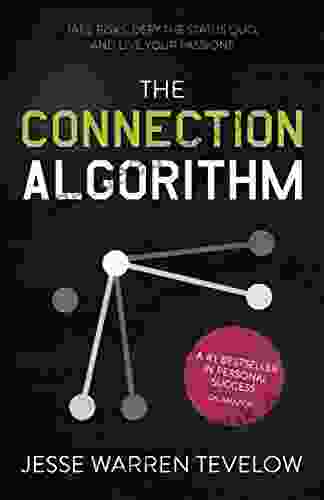Death is a natural part of life, but the way we deal with it has changed significantly in the digital age. Social media, digital preservation, and artificial intelligence (AI) are all having a profound impact on how we grieve and remember our loved ones.
Social Media and Grief
In the past, people would often turn to their friends and family for support after losing a loved one. Today, social media has become an increasingly popular way to share our grief and connect with others who have experienced similar losses.
5 out of 5
| Language | : | English |
| File size | : | 1580 KB |
| Text-to-Speech | : | Enabled |
| Enhanced typesetting | : | Enabled |
| Word Wise | : | Enabled |
| Screen Reader | : | Supported |
| Print length | : | 229 pages |
| Paperback | : | 30 pages |
| Item Weight | : | 3.84 ounces |
| Dimensions | : | 8.5 x 0.08 x 8.5 inches |
There are many benefits to using social media to grieve. It can help us to feel less isolated, find support from others who understand what we're going through, and express our emotions in a safe and supportive environment.
However, there are also some potential drawbacks to using social media to grieve. For example, it can be difficult to see others sharing happy memories of our loved ones when we're still struggling with our grief. It can also be tempting to compare our grief to others', which can lead to feelings of inadequacy or guilt.
If you're considering using social media to grieve, it's important to be aware of both the benefits and the drawbacks. There is no right or wrong way to grieve, and what works for one person may not work for another.
Digital Preservation and Remembrance
The digital age has also made it possible to preserve our loved ones' memories in a way that was never possible before. Social media posts, photos, videos, and other digital artifacts can all be used to create a lasting legacy for our loved ones.
There are many benefits to digital preservation. It can help us to keep our loved ones close, even after they're gone. It can also help us to learn more about our family history and to share our memories with future generations.
However, there are also some potential drawbacks to digital preservation. For example, it can be difficult to know what to do with our loved ones' digital assets after they're gone. We may also worry that our loved ones' privacy will be compromised if their digital assets are not properly managed.
If you're considering using digital preservation to remember your loved ones, it's important to be aware of both the benefits and the drawbacks. There is no right or wrong way to remember our loved ones, and what works for one person may not work for another.
Artificial Intelligence and Grief
Artificial intelligence (AI) is still in its early stages, but it has the potential to revolutionize the way we grieve and remember our loved ones. AI can be used to create personalized grief experiences, provide support and companionship, and even help us to communicate with our loved ones who have passed away.
There are many potential benefits to using AI to grieve. For example, AI could help us to:
* Create personalized grief experiences that are tailored to our individual needs. * Provide support and companionship when we're feeling isolated or alone. * Help us to communicate with our loved ones who have passed away. * Learn more about our loved ones' lives and experiences.
However, there are also some potential drawbacks to using AI to grieve. For example, we may worry that AI will replace human interaction or that our loved ones' privacy will be compromised.
It's important to remember that AI is just a tool. It cannot replace human interaction or provide the same level of comfort and support as a loved one. However, AI can be a valuable tool for grieving people, and it has the potential to make a real difference in our lives.
Death is a difficult and challenging experience, but the digital age is providing us with new ways to grieve and remember our loved ones. Social media, digital preservation, and AI are all having a profound impact on the way we deal with death, and these technologies have the potential to make a real difference in our lives.
As we continue to explore the use of technology to grieve and remember our loved ones, it's important to remember that there is no right or wrong way to do so. What works for one person may not work for another. The most important thing is to find what works for you and to use technology to help you cope with your grief in a way that is meaningful and healing.




























































































